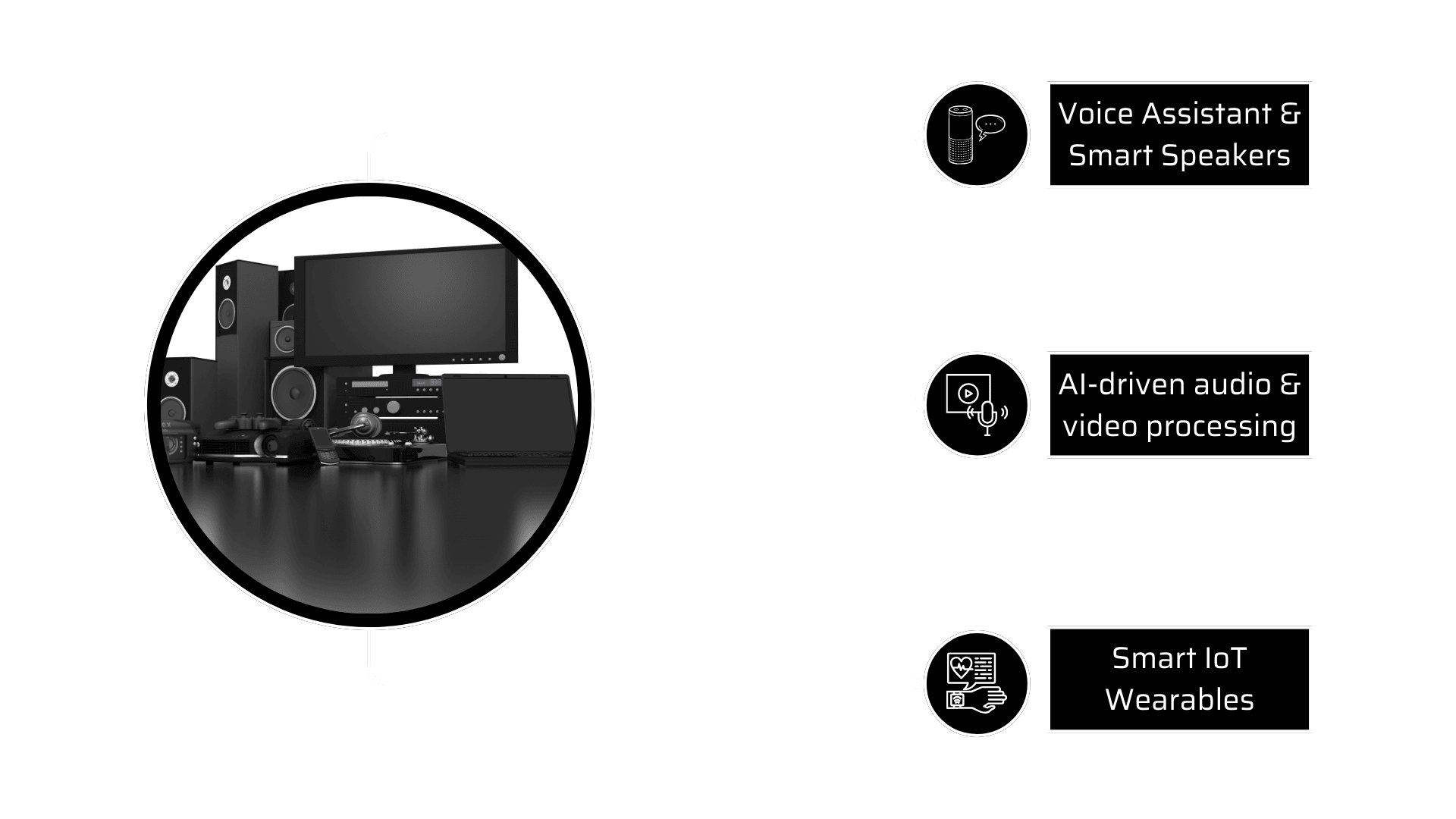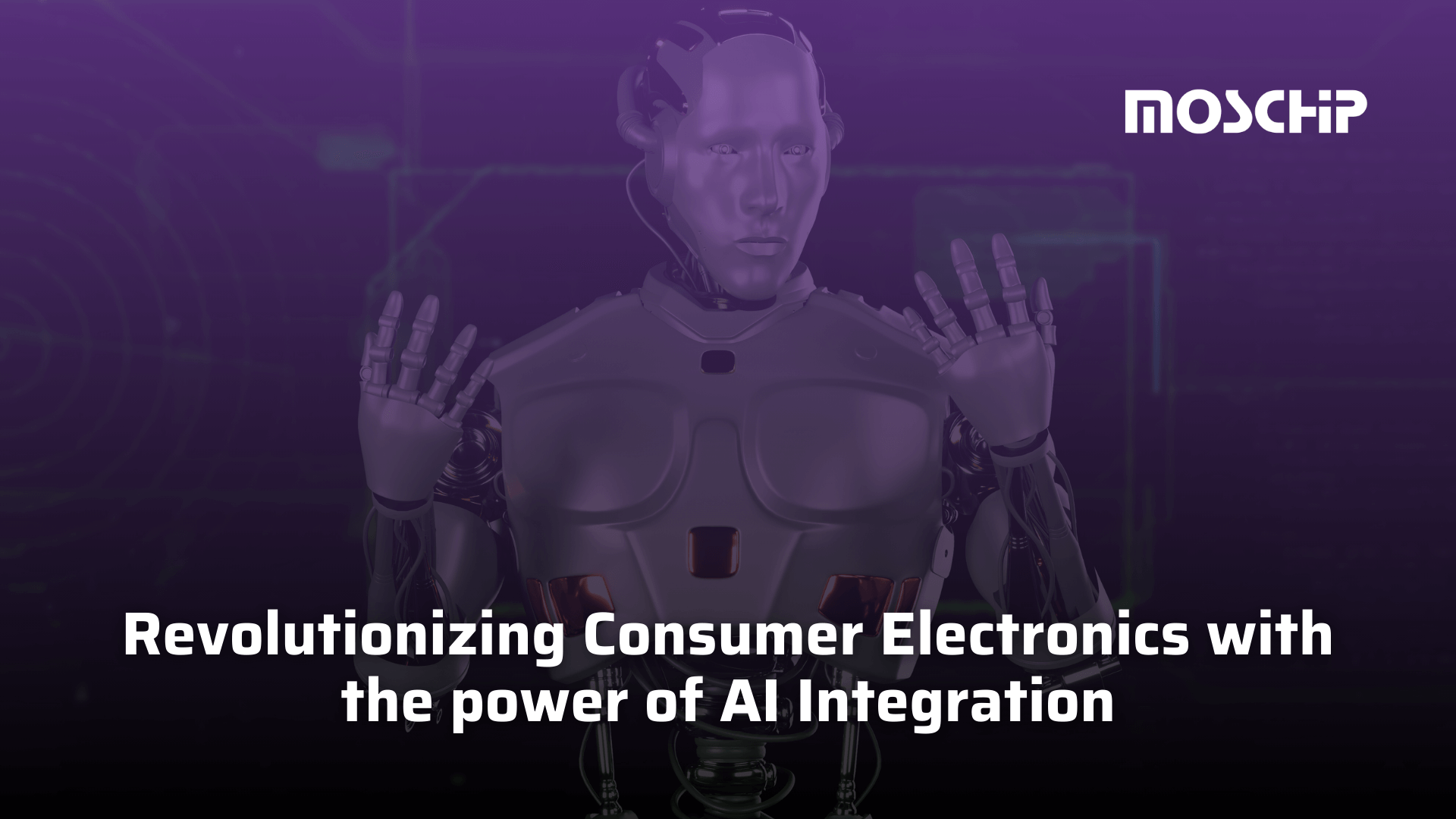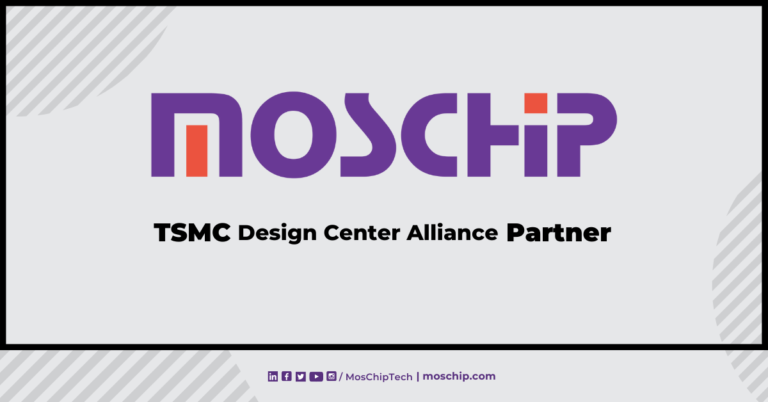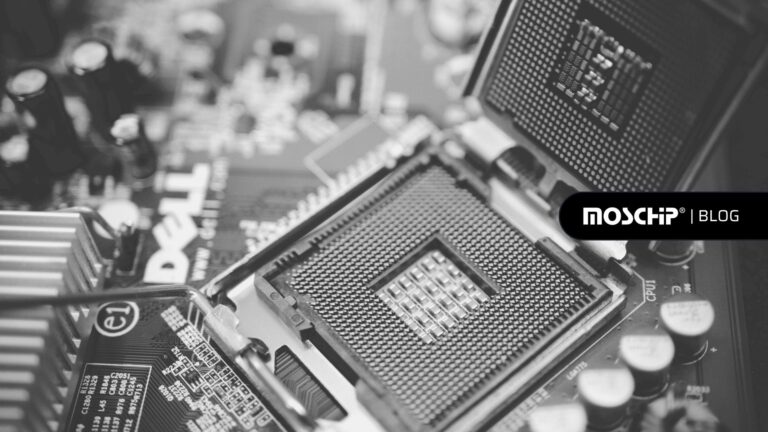Revolutionizing Consumer Electronics with the power of AI Integration
In recent years, the rapid advancement of technology has revolutionized various industries, and the consumer electronics sector is no exception. One of the most prominent and influential technologies is Artificial Intelligence (AI) and Machine Learning (ML) development. AI-powered technology, driven by machine learning advancements, has a profound impact on consumer electronics, transforming our interaction with consumer devices/ products. To enable these devices to analyse data, learn from it, and make decisions or take actions based on that analysis, intelligent algorithms and machine learning techniques are used.
Consumer electronics encompass a wide range of electronic devices that are intended for personal usage and entertainment purposes. This includes smartphones, tablets, laptops, televisions, smartwatches, and more. The sector has experienced significant growth over the years, with consumers becoming increasingly reliant on these devices for communication, information, and entertainment.
Evolution of AI in Consumer Electronics
AI integration into consumer electronics began with voice recognition. Devices such as smartphones and personal assistants implement AI algorithms to understand and respond to user commands. AI has transformed consumer electronics devices into smart, intuitive, and personalized companions that enhance our daily lives. This transformation is influenced by the advancement of microprocessors or AI-enabled chips. Microprocessors, often referred to as the “brain” of electronic devices, play a vital role in providing AI capabilities in consumer electronics. Over the years, AI-enabled chips have become more powerful and energy-efficient, allowing for the integration of AI algorithms directly into consumer electronic devices. This integration has led to significant advancements in voice recognition, natural language processing, and machine learning capabilities. As AI technology advanced, so did its impact on consumer electronics. One notable development was the emergence of voice assistants. AI-powered assistants became common, residing on smart speakers, smartphones, and other devices, providing users with a wide range of flexibility and convenience. It could answer questions, set reminders, play music, control smart home devices, and perform various other tasks, all through voice commands. These significant advancements in artificial intelligence and machine learning solutions have paved the way for more sophisticated and innovative applications in the consumer electronics sector.
Impact of AI on the Consumer Electronics Market
The integration of AI-powered technology has had a significant impact on the consumer electronics market, shaping consumer expectations, evolving business models, and creating new market opportunities. As consumers become increasingly familiar with smart devices in their daily lives, their expectations and demands for smart and intuitive electronics are growing. They expect seamless integration, personalized experiences, and enhanced functionality.
The integration of AI into consumer electronics has brought about significant disruptions in traditional consumer industry and simultaneously created new market opportunities. One notable example is the rise of smart home automation. This has revolutionized the way people manage their homes and created new markets for next-gen devices/solutions. Smart home automation refers to the integration of connected devices and systems that allow homeowners to control and monitor various aspects of their homes remotely. Using AI algorithms and connectivity technologies, such as Internet of Things (IoT) devices, smart homes enable seamless integration and automation of household tasks and functions. For example, the increased demand for smart home automation has created a market for home security systems/devices. AI-powered security systems can detect and respond to potential threats, providing homeowners with enhanced safety and peace of mind. These systems can include features such as motion detection via sensors, and automated alerts to prevent unauthorized access or detect suspicious activities.
Another market opportunity that has grown from smart home automation is in the field of energy management solutions. AI algorithms can analyze energy usage patterns within a home and provide recommendations for optimizing energy consumption. Smart thermostats, for instance, can learn the preferences and behavior of occupants and adjust temperature settings accordingly, leading to energy savings and increased efficiency. Additionally, AI-powered systems can monitor energy consumption and suggest ways to reduce wastage, such as turning off lights or appliances when they are not in use.

Applications of consumer electronics
Applications of AI in Consumer Electronics
AI has found a wide range of applications, enhancing user experiences and product functionality in connected consumer electronics.
Voice assistants and smart speakers: AI enabled voice assistants and connected applications have become an integral part of many homes, with smart speakers like Amazon Echo and Google Home being widely adopted. These voice assistants rely heavily on AIML algorithms to understand natural language commands and perform a wide range of tasks. Through Natural Language Processing (NLP) and machine learning, voice assistants can accurately interpret user queries, provide relevant responses, and execute various actions. They can set reminders, play music, answer questions, control smart home devices, and even engage in conversational interactions.
AI-driven audio and video processing: AI is improving audio and video processing in consumer electronics through intelligent algorithms. These algorithms are employed to improve sound quality, reduce background noise, enhance voice clarity, and provide immersive audio experiences. Noise cancellation techniques, powered by AIML, minimize unwanted sounds, and provide clear audio. AIML models can be trained to compare high-resolution and low-resolution video frames. By doing so, these models learn to understand the relationship between the two types of frames. This understanding allows them to generate high-resolution frames from low-resolution inputs, improving overall video quality. These models are called super-resolution algorithms because they enhance video resolution and details. Through the use of advanced AIML techniques, these algorithms play a significant role in upscaling video quality, providing sharper and more visually appealing videos.
Smart IoT wearables: Smart wearables are taking health monitoring to new heights. Advanced sensors combined with AIML algorithms will enable devices to track vital signs, detect anomalies, and provide proactive health insights. IoT Wearables are playing a crucial role in preventive healthcare, empowering users to monitor their well-being and make informed decisions about their health.
The future of AI-powered consumer electronics
AI-driven consumer electronics technology looks promising. AIML algorithms are increasingly being deployed on devices, allowing for faster processing and a reduced reliance on cloud services. This enables real-time decision-making with improved data privacy.
The consumer electronics sector will continue to evolve with AIML technology. We can expect further advancements in all the industries with next-gen smart devices providing improved productivity and personalized experiences. Additionally, AIML integration in IoT wearables and health-related devices is expected to grow, enabling real time monitoring and analysis of user data. As the field continues to evolve exponentially, it is crucial for manufacturers and users to collaborate and navigate the future of AI in consumer electronics responsibly.
At MosChip, our AI engineering and machine learning services empower businesses to develop intelligent solutions involving expertise over computer vision, cognitive computing, artificial intelligence, ML lifecycle management and FPGA acceleration across various domains. We possess the capability to handle a complete Machine Learning (ML) pipeline involving dataset, model development, optimization, testing, and deployment. We also build ML transfer learning frameworks and AIML solutions on cloud as well as edge platforms.
About MosChip:
MosChip has 20+ years of experience in Semiconductor, Embedded Systems & Software Design, and Product Engineering services with the strength of 1300+ engineers.
Established in 1999, MosChip has development centers in Hyderabad, Bangalore, Pune, and Ahmedabad (India) and a branch office in Santa Clara, USA. Our embedded expertise involves
platform enablement (FPGA/ ASIC/ SoC/ processors), firmware and driver development, BSP and board bring-up, OS porting, middleware integration, product re-engineering and sustenance, device and embedded testing, test automation, IoT, AIML solution design and more. Our semiconductor offerings involve silicon design, verification, validation, and turnkey ASIC services. We are also a TSMC DCA (Design Center Alliance) Partner.
Stay current with the latest MosChip updates via LinkedIn, Twitter, FaceBook, Instagram, and YouTube







